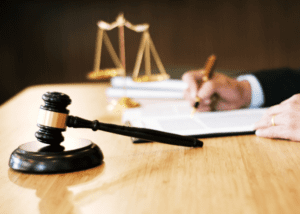Tips and Best Practices for a Successful Deposition
Reading Time: 5 minutes
Getting Your Deposition Taken
The thought of sitting for a deposition, whether you’re a litigant or a third-party witness, can be quite daunting, especially if you’ve never been through the process before. Keep in mind, however, that a deposition is simply part of the fact-finding process. The purpose of a deposition is for the deposing attorney to learn facts about the case. The deposing attorney’s goal is to discover facts that are helpful to his or her case. A deposition usually has the following people in attendance: a court reporter to transcribe in transcript form the questions and answers, the parties’ attorneys, and usually, the litigants to the case. If you’re not a party of the case, but you’ve been served a subpoena as a witness, you can also bring your own attorney.
Preparation is Key
There truly are no “secrets” to a successful deposition. The best piece of advice to follow is to simply be prepared. It’s important to consider many things prior to the day of your deposition, including what to review in the case, what to bring to the deposition, and even what to wear at the deposition. Also keep in mind that a good deposing attorney will likely ask you what you did in preparation for the deposition, so don’t be caught off guard by this question and be prepared to disclose that information.
What to Review
One of the most important goals for any deponent during their deposition is to remain consistent—not only with your testimony throughout the deposition itself, but also with the documents that have been filed in the case. Therefore, you should review any documents you or your attorney have filed on your behalf, especially any discovery documents you have produced. If you are a witness for a particular party, you should review documents they have filed or documents you have produced in response to any subpoenas you have been served. It’s also important to review the Notice of Deposition that was served for your specific deposition, as it will often contain the scope of the deposition and any documents you’re expected to bring with you.
Providing the Best Testimony
There are several things you can do during your testimony to ensure you provide the best testimony for your case. First and foremost, tell the truth, and avoid exaggerating or trying to mislead. Your answers should be short and concise. As a general rule, most answers should be no more than two sentences. If you’re taking more than two sentences to answer a question, chances are you are volunteering information that was not inquired about. This leads us to the next tip: do not volunteer information. Listen to each question carefully, and make sure to answer the question that was asked and not the one you think was asked. This is why short answers are the best answers. If the question calls for a “yes” or “no” answer, limit it to that, and do not elaborate.
If you do not know the answer to a question, or if you do not recall the answer, it is perfectly acceptable to simply say, “I do not know” or “I do not remember.” Knowing the difference between those two responses is very important. “I do not know” informs the deposing attorney that you never knew the answer the question. “I do not remember” informs the deposing attorney that you may have known the answer at one time, but you do not remember the answer at the time of your deposition. Additionally, as a follow-up to the last piece of advice, never guess.
One of the most important things you can do during a deposition is to listen carefully. Pay very close attention to each question being asked, and make sure you fully understand what is being asked of you before providing an answer. If a question is unclear or you do not fully understand the question, ask the attorney to clarify or rephrase the question. If you still do not understand the question, ask for clarification again. It’s the attorney’s job to ask clear questions and not try to purposefully confuse you.
Finally, allow the other attorney to finish his or her question before answering, and take your time and pause before answering questions. This allows you to clearly formulate your answer before blurting out the first thing that comes to your mind. It also allows your attorney to make any necessary objections before you respond.
Other Useful Things to Know
Your deposition may take a full day, so you want to be prepared to stay comfortable and alert throughout the day. While you want to dress comfortably, you should also dress professionally, and ensure you have the ability to adjust to the temperature in the room—whether that be warm or cool. You may want to bring snacks or lunch, and don’t be afraid to ask for breaks throughout your deposition. Depositions are not meant to be marathons. Finally, be sure to bring your driver’s license or some other form of identification, as the court reporter will need that for the record.
Conclusion
Depositions are extremely important, as a deposition can make or break a case. You want to do everything you can to ensure you have a successful deposition and following these tips are just a handful of ways to ensure you set yourself up for success. The litigation attorneys at Jimerson Birr have extensive experience in both giving and defending depositions and can assist you during your next deposition.


